
MEGHAN N. FLYNN ‘19 M.A.
Understanding what needs to change — and then knowing how to change it.
Community psychology focuses on the solutions to human problems in a wide variety of settings, by developing theory, research, and practice to enhance the functioning of individuals, families, groups, institutions, and entire communities. Community Psychology advocates for social justice by empowering marginalized communities and seeks to strengthen health and well-being through community partnership and prevention programs. For 50 years, the University of New Haven's Master's Program in Community Psychology has successfully prepared graduates for professional careers in mental health and related human services.
We provide a distinctive applied psychology education. We offer four program concentrations – community mental health, community research and evaluation, program development, and forensic psychology – that enable our students to tailor the curriculum to meet their individual needs and professional goals.
You’ll learn to apply different psychological and social sciences theories and approaches to understand and impact the complex forces that influence individual and community behavior and well-being.
The program allows students to simultaneously complete their degree, obtain practical experience, work full-time or part-time, and meet financial obligations. Full-time students can complete the program in two years, and classes are offered during evening hours to accommodate working students.
"The Community Psychology program's small size made me feel that my professors and peers really knew me, which made me feel I was an integral part of the classroom. "
- Kathryn Thamsen '18
In our annual Alumni Survey, most respondents stated that they are earning a salary between $60,000 - $70,000, with some earning over $100,000.
The information below is designed to show the many possible careers you could pursue with your major. The research is provided by Encoura, the leading research and advisory firm focused exclusively on higher education. It includes median national salaries and industry growth projections over the next decade. Click here to view the full report.
Personal Services Managers
7% Growth 2021-2030
Psychologists
12% Growth 2021-2030
Mental Health and Substance Abuse Social Workers
12% Growth 2021-2030

Understanding what needs to change — and then knowing how to change it.
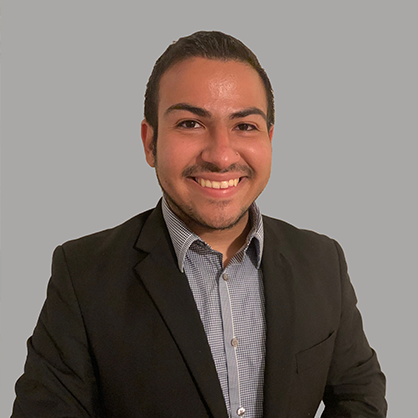
A calling to help at-risk youth leads to advocacy work and the chance to help reform State programs.

Dedicated professors and a critical community need inspire a future victim advocate.

A love for Community-Clinical services leads to plans for a future mentorship program for current students and alumni.

‘The University Has Fulfilled Everything I Was Looking for in a Program’
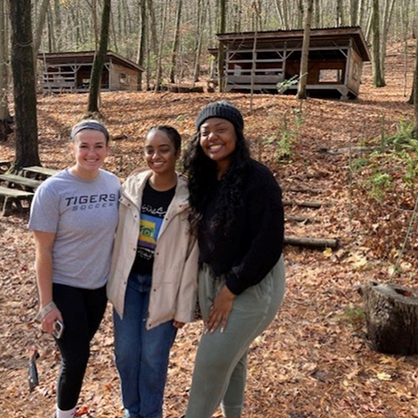
Studies and community involvement fuel a passion to make change.
We want you to have a good idea of your job potential, so we keep tabs — on how many recent graduates are employed in the field and how, in their estimation, our program positioned them for success. The survey results below give you the inside story.
of 2021 graduates surveyed are currently employed in the field of community psychology, with 55% working within their concentration
of 2021 graduates surveyed are satisfied with their current employment, with 80% reporting satisfaction with their current salary
of 2021 graduates surveyed said that the University of New Haven’s Community Psychology program prepared them well to meet the challenges they encounter in their professional work
An examination of historical roots and current concepts. A social-problems approach to psychological dysfunction, emphasizing models of social support, prevention, and community, as well as strategies of empowerment and social change.
This course examines the pervasive effects of social stratification as they are enacted in public organizations such as schools, community centers, and human service agencies. Students will explore how their race, ethnicity, social class, gender, and sexual orientation, for example, impact the people with whom they work. The course will also investigate the theoretical underpinnings of systematic social dominance and how students might counter this dominance in their workplaces and outside them.
This course examines various mental health treatment modalities, with particular emphasis on treatment for patients/inmates in the forensic system. Treatment of insanity acquittees, incompetent-to-stand-trial patients, inmates, juvenile offenders, psychopaths, and sex offenders will be examined.
A systematic study of the processes involved in planning, implementation, and impact of organizational programs. The focus is on action research strategies that integrate the entire evaluation process.
To view the complete list of courses you'll take while pursuing a master’s degree in community psychology, check out the Academic Catalog:
Community Psychology, M.A. - Community Mental Health Concentration
Community Psychology, M.A. - Community Research and Evaluation Concentration
Community Psychology, M.A. - Forensic Psychology Concentration
Community Psychology, M.A. - Program Development Concentration
Our faculty are leaders and innovators in their fields, bringing both deep professional experience and academic rigor to the classroom.
Get an inside look at what differentiates the University of New Haven and how your experiences as a student will prepare you for success.
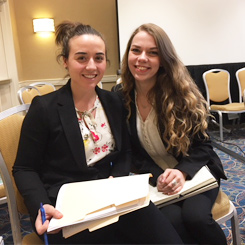

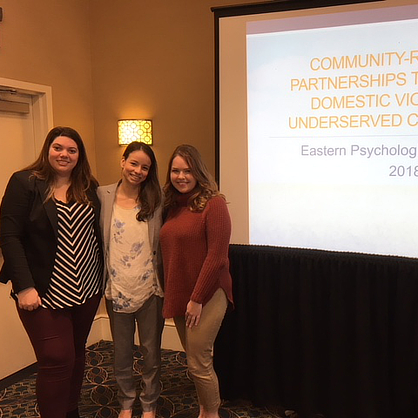
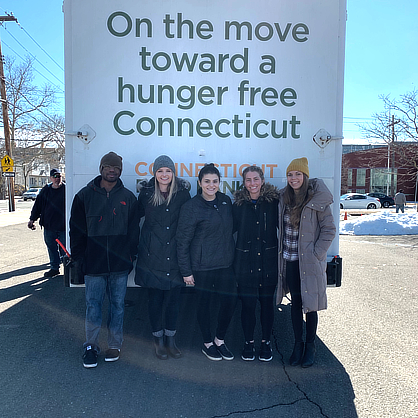
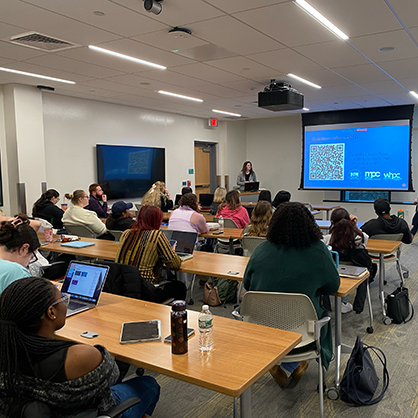
The Charger Blog
A training session held recently at the University brought together Chargers and a community nonprofit, teaching students how to administer NARCAN to reverse the effects of an opioid overdose. The session helped them learn how they can be changemakers in a nationwide crisis, teaching them how to offer support while also reducing the stigma of opioid addiction.
The latest issue of "CP Scene," the official newsletter of the University’s master’s degree programs in community psychology and clinical mental health counseling, features spotlights on current students, profiles on alumni and faculty, and an overview of a course on family therapy that was taught by Melissa Whitson, Ph.D. at the University's campus in Prato, Italy.
All University of New Haven students have access to the many resources available through the University’s Career Development Center, which has been named one of the best in the nation by The Princeton Review.
From career assessments, networking, and job shadowing to on-campus interviews and salary negotiation, the Career Development Center provides the skills and connections to identify a meaningful career and an opportunity to pursue your passion.
Learn MoreAn advanced degree from the University of New Haven will help you take your career to the next level. Each program offers convenient scheduling, personalized attention, and state-of-the-art facilities.
View Application Requirements
The University of New Haven Graduate School is an excellent value with reasonable tuition. Of course, you will still have bills to pay and the Financial Aid office can help.
Learn More